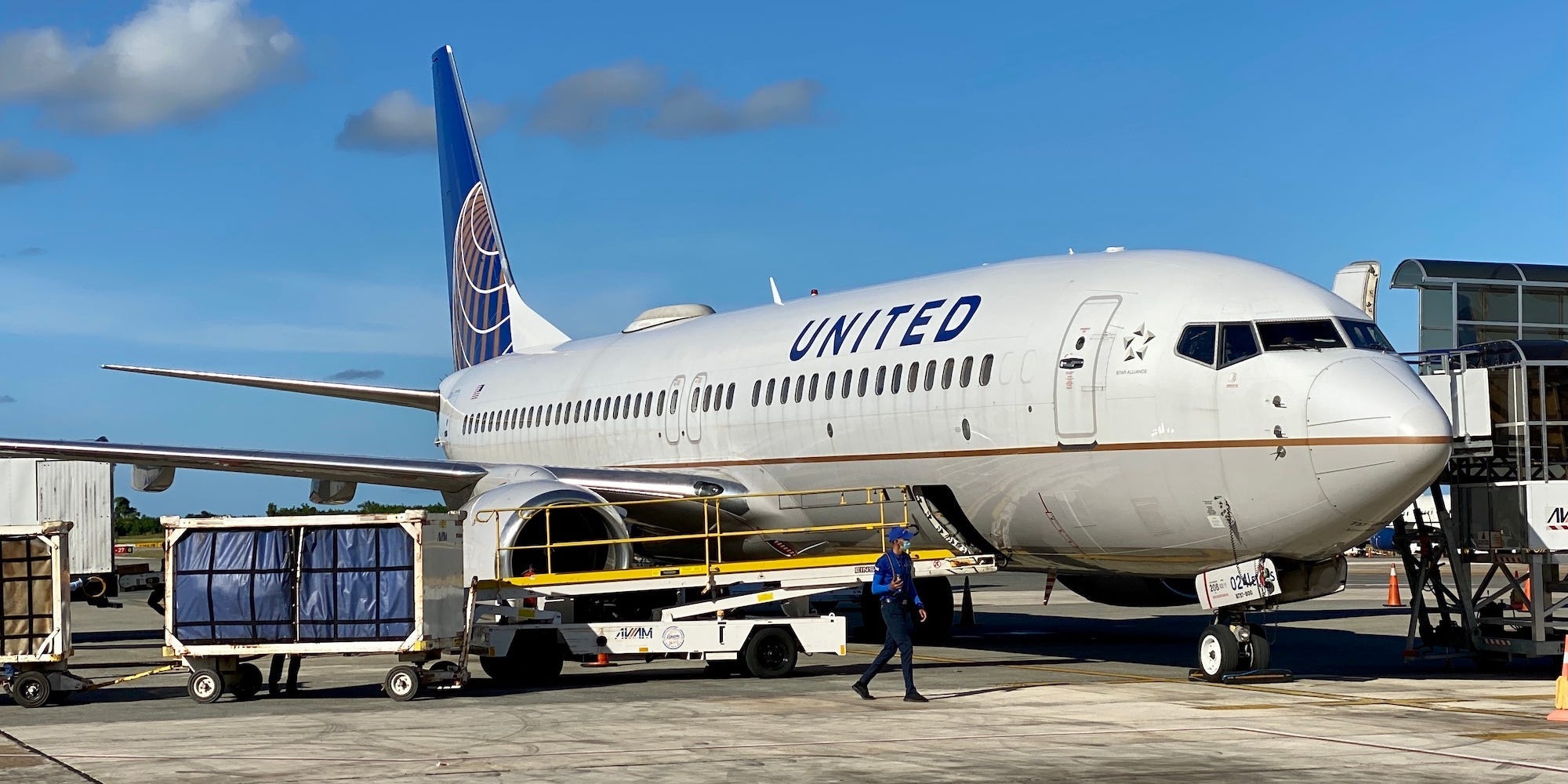
Photo by DANIEL SLIM/AFP via Getty Images
- A coroner confirmed that a man who died on a United flight after a medical emergency last week had COVID-19, The Washington Post reported.
- The report said 69-year-old Isaias Hernandez died of COVID-19 and acute respiratory failure.
- United previously told Business Insider they were only made aware that the man had experienced cardiac arrest at the time of the medical emergency.
- Visit Business Insider’s homepage for more stories.
A man who died on a United flight last week was confirmed to have had COVID-19, The Washington Post reported.
The man, now identified as Isaias Hernandez, 69, had a medical emergency that forced pilots to divert United flight 591 from its scheduled Orlando-to-Los Angeles route to New Orleans instead. Hernandez was taken by paramedic to a local hospital where he was pronounced dead.
A report by Jefferson Parish coroner Gerry Cvitanovich found that Hernandez died from COVID-19 and acute respiratory failure.
United previously told Business Insider that they were initially only told he suffered from cardiac arrest.
Hernandez’s wife was overheard telling an EMT that her husband had COVID-19 symptoms, including loss of taste and smell at the time of the medical emergency, The Post reported. However, United said a medical professional did not confirm that at the time and it was unclear if he was infected.
After the emergency, passengers were given the option to take a later flight or continue on the one they were on, instead of switching planes.
A United official previously told Business Insider that Hernandez did not disclose in a pre-boarding checklist that he was experiencing COVID-19 symptoms.
The airline said it was working with health officials to contact passengers who were on the flight.
"Now that the CDC has contacted us directly, we are sharing requested information with the agency so they can work with local health officials to conduct outreach to any customer the CDC believes may be at risk for possible exposure or infection," a spokesperson said last week.

